Hamlet characters play a crucial role in shaping the universal themes of death, ethics, and revenge highlighted in Shakespeare’s masterpiece. Written between 1599 and 1601, the play remains one of literature’s greatest works. It continues to attract renowned scholars who focus on Hamlet character analysis. Even Sigmund Freud provided a psychoanalytic examination of the personages in The Interpretation of Dreams (1900).
This article, developed by Custom Writing experts, begins with a Hamlet character map highlighting the diverse relationships within the play. After that, it provides a detailed character sketch of Hamlet and his traits. Hamlet character analysis with quotes is followed by Claudius, Gertrude, Ophelia, Polonius, Laertes, Horatio, Rosencrantz, Guildenstern, the Ghost, and minor Hamlet characters.
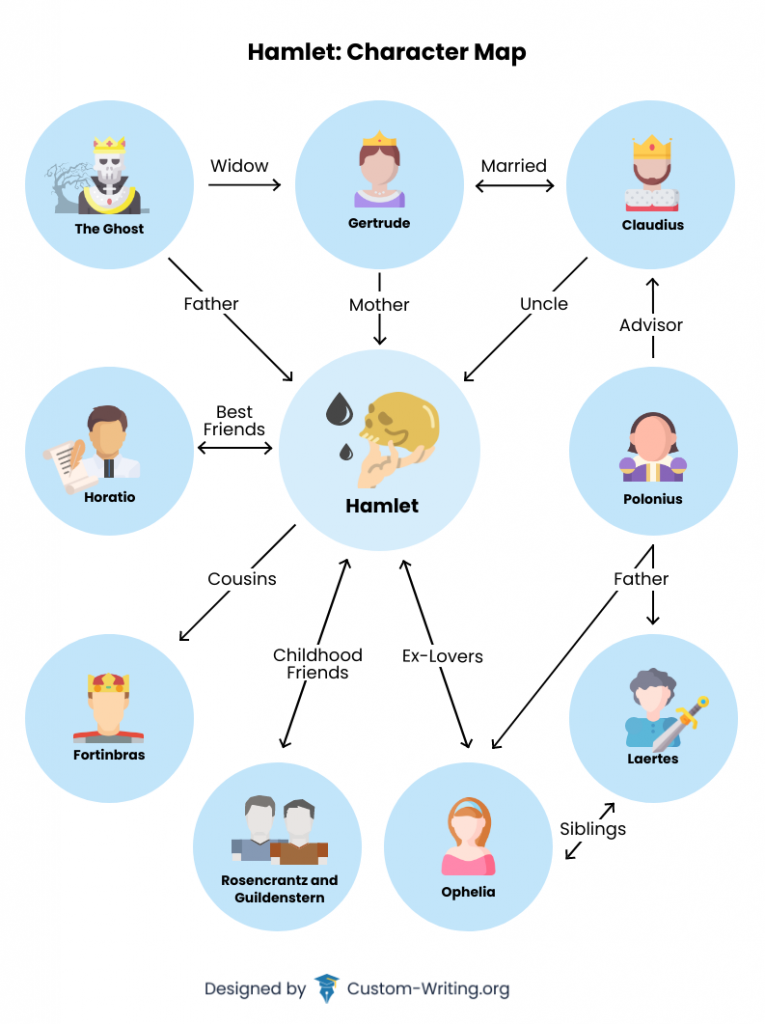
Hamlet: Character Analysis
Hamlet, Prince of Denmark, is a central character of the play. It starts with him returning home from school to mourn the death of his father. He’s troubled by his mother’s, Gertrude, marriage to his uncle, Claudius, two months after the funeral. Hamlet meets the ghost of his father, who claims that his brother poisoned him in the ear.
Prince Hamlet is a thoughtful and observant young man. After learning that Claudius murdered his father, Hamlet becomes obsessed with death and an idea of revenge.
Most of the characters in tragedies are characterized by their actions. Hamlet, though, is defined by his inability to act. The play centers around his internal, spiritual journey. Hamlet’s character traits and thought-process are much more prominent than his acts.
Hamlet is the man of contradictions. He is caring, yet he is reckless, he loves his mother but shows aggression to her. He wants revenge but hesitates at the same time. Mourning the death of his father, Hamlet does not show any sorrow for causing death to others.
Being a tragic hero, Hamlet has a lot of negative traits. He’s full of hate, indecisiveness, and manipulativeness. Due to his misogyny, his relationships with his mother and his beloved Ophelia become complicated. Underneath a layer of cynicism, though, Hamlet has a very affectionate and tender soul. His depression is covering his love.
The demand for revenge destroys any possibility of a happy life. Hamlet feels trapped between his promise and his religious beliefs. Many critics attributed Hamlet’s hesitation to act to the Oedipus complex and his cowardice. However, one should consider Hamlet’s Christian beliefs. Throughout the play, Hamlet shows a deep preoccupation with the condition of death and his soul. He even says that committing suicide would be easy if he would be pagan. The same happens when Hamlet gets an opportunity to kill Claudius while Claudius is praying. Therefore, his conflict is the paradox between the heroic tradition he grew up in and his Christian faith.
Hamlet’s Quotes
Frailty, thy name is woman.
Hamlet, Hamlet, Act 1, Scene 2
To be or not to be, that is the question
Hamlet, Hamlet, Act 3, Scene 1
Whether ‘tis nobler in the mind to suffer
The slings and arrows of outrageous fortune
Or to take arms against a sea of troubles
And by opposing, end them.
God hath given you one face and you make yourselves another.
Hamlet, Hamlet, Act 3, Scene 1
No, faith, not a jot; but to follow him thither,
Hamlet, Hamlet, Act 5, Scene 1
with modesty enough and likelihood to lead it, as
thus: Alexander died, Alexander was buried, Alexander
returneth into dust; the dust is earth; of earth
we make loam; and why of that loam, whereto he
was converted might they not stop a beer barrel?
Imperious Caesar, dead and turned to clay,
Might stop a hole to keep the wind away.
O, that that earth which kept the world in awe
Should patch a wall t’ expel the winter’s flaw!
If thou didst ever hold me in thy heart
Hamlet, Hamlet, Act 5, Scene 2
Absent thee from felicity awhile
And in this harsh world draw thy breath in pain
To tell my story.
Claudius: Character Analysis
The new King of Denmark, Hamlet’s uncle, and the antagonist of the play. He can be considered the critical villain in Hamlet.
King Claudius is a big sized and extravagantly dressed man. Being a natural politician, he is a very skilled diplomat. His style of leadership is entirely different from the Old Hamlet’s one. He prefers to solve problems by spying, manipulating, and scheming.
Claudius is an exceptional actor. He knows how to pretend and make others believe in his “goodness.” He pretends to mourn his brother, to be a “savior” of the nation, and to care for others. However, Prince sees the dual nature of his personality. Therefore, Hamlet and Claudius’s relationships are very complicated.
Claudius’s Quotes
Madness in great ones must not unwatched go.
Hamlet, King Claudius, Act 3, Scene 1
How smart a lash that speech doth give my conscience!
Hamlet, King Claudius, Act 3, Scene 1
The harlot’s cheek, beautied with plast’ring art,
Is not more ugly to the thing that helps it
Than is my deed to my most painted word.
O heavy burden!
Oh, my offence is rank. It smells to Heaven.
Hamlet, King Claudius, Act 3, Scene 3
It hath the primal eldest curse upon ’t,
A brother’s murder.
Oh, this is the poison of deep grief. It springs
Hamlet, King Claudius, Act 4, Scene 5
All from her father’s death, and now behold!
O Gertrude, Gertrude,
When sorrows come, they come not single spies
But in battalions.
O yet defend me friends, I am but hurt.
Hamlet, King Claudius, Act 5, Scene 2
Gertrude: Character Analysis
Gertrude is Hamlet’s mother and the Queen of Denmark. She is a widow of Old Hamlet and the wife to Claudius, the new King. She lacks soliloquies and does not express her feelings or thoughts directly. However, the importance of Gertrude in Hamlet becomes fully visible in the last scenes of the play. There, her dramatic prominence is manifested.
Queen Gertrude loves Hamlet. Yet, she is not strong enough to pursue what is right, caring more about her social status. She is also very sensual, even the ghost comments on Gertrude’s sensuality. Throughout the play, she never elaborates on anything that will prove or disprove this.
Traditionally, Gertrude is seen as one of the most passive characters in the play. She does not have a firm position and is a mere reflection of Claudius and Hamlet. At the same time, she is very insightful, usually making correct observations and judgments.
When Gertrude learns that Claudius killed Old Hamlet, she experiences shame and guilt. She lies to Claudius about Hamlet’s insanity because she wants to help her son. At the beginning of the play, Hamlet and Gertrude experience some difficulties. Later, though, they resolve it.
Gertrude’s Quotes
Thou know’st ’tis common. All that lives must die,
Hamlet, Queen Gertrude, Act 1, Scene 2
Passing through nature to eternity.
I doubt it is no other but the main:
Hamlet, Queen Gertrude, Act 2, Scene 2
His father’s death and our o’erhasty marriage.
Thou turn’st mine eyes into my very soul,
Hamlet, Queen Gertrude, Act 3, Scene 4
And there I see such black and grainèd spots
As will not leave their tinct.
I have no life to breathe what thou hast said to me.
Hamlet, Queen Gertrude, Act 3, Scene 4
There, on the pendent boughs her coronet weeds
Hamlet, Queen Gertrude, Act 4, Scene 7
Clambering to hang, an envious sliver broke;
When down her weedy trophies and herself
Fell in the weeping brook.
Her clothes spread wide;
And, mermaid-like, awhile they bore her up:
Which time she chanted snatches of old tunes;
As one incapable of her own distress,
Or like a creature native and indued
Unto that element: but long it could not be
Till that her garments, heavy with their drink,
Pull’d the poor wretch from her melodious lay
To muddy death.
Ophelia: Character Analysis
Ophelia is the daughter of a kingdom advisor and one of closest Claudius’s friends — Polonius. She is in love with Hamlet but also very loyal to her father and her brother, Laertes. Nevertheless, Ophelia stands out in her family, just like Hamlet. She has a compassionate and idealistic nature.
Both her father and brother try to control Ophelia’s love life. When Polonius orders Ophelia to cease all the contact with Hamlet, she obeys. Her father, in essence, does not have any concern about her happiness. She truly loves Hamlet, and she does not have a chance for happiness without him.
When Hamlet kills Polonius, Ophelia goes mad because she loses both men at the very same moment. She also blames herself for Hamlet’s insanity and commits suicide. Ophelia’s drowning is one of the most beautifully written scenes in the play.
Ophelia’s Quotes
But, good my brother,
Hamlet, Ophelia, Act 1, Scene 3
Do not, as some ungracious pastors do,
Show me the steep and thorny way to heaven.
He took me by the wrist and held me hard.
Hamlet, Ophelia, Act 2, Scene 1
Then goes he to the length of all his arm,
And, with his other hand thus o’er his brow,
He falls to such perusal of my face
As he would draw it.
Rich gifts wax poor when givers prove unkind.
Hamlet, Ophelia, Act 3, Scene 1
Tomorrow is Saint Valentine’s day,
Hamlet, Ophelia, Act 4, Scene 5
All in the morning betime,
And I a maid at your window,
To be your Valentine.
Then up he rose, and donned his clothes,
And dupped the chamber door.
Let in the maid that out a maid
Never departed more.
There’s rosemary, that’s for remembrance.
Hamlet, Ophelia, Act 4, Scene 5
Pray you, love, remember.
And there is pansies, that’s for thoughts.
[…]
There’s fennel for you, and columbines.—There’s rue for
you, and here’s some for me. We may call it “herb of
grace” o’ Sundays.—Oh, you must wear your rue with a
difference.
[…]
There’s a daisy. I would give you some
violets, but they withered all when my father died. They
say he made a good end.
Polonius: Character Analysis
Polonius is the chief minister of Denmark. He is Ophelia’s father and Laertes’ father. He pretends to be wiser and smarter than he is. He also desires to look as if he is a good father. However, he does not care about his children’s happiness.
Polonius’ key character traits are defined by his cynical, controlling, and illusory nature. His patronizing speech to Laertes reveals it in full glory. Polonius advises Laertes to be himself, and at the same time, he sends Reynaldo to spy on him.
Since Polonius’s initial role is that of King Claudius’s councilor, this function determines the nuances of his relationships with other characters. The degree of devotion to Claudius makes others treat him like a pathetic person undeserving of trust. Therefore, Polonius’s commitment to the royal family’s interests often overshadows his regard for relationships with close people. He can manipulate everyone besides Hamlet and Gertrude. His death is the climax of the play.
Polonius’s Quotes
In few, Ophelia,
Hamlet, Polonius, Act 1, Scene 3
Do not believe his vows, for they are brokers,
Not of that dye which their investments show,
But mere implorators of unholy suits,
Breathing like sanctified and pious bawds
The better to beguile.
Neither a borrower nor a lender be,
Hamlet, Polonius, Act 1, Scene 3
For loan oft loses both itself and friend,
And borrowing dulls the edge of husbandry.
This above all: to thine own self be true,
Hamlet, Polonius, Act 1, Scene 3
And it must follow, as the night the day,
Thou canst not then be false to any man.
Farewell, my blessing season this in thee!
See you now,
Hamlet, Polonius, Act 2, Scene 1
Your bait of falsehood take this carp of truth,
And thus do we of wisdom and of reach,
With windlasses and with assays of bias,
By indirections find directions out.
Madam, I swear I use no art at all
Hamlet, Polonius, Act 2, Scene 2
That he’s mad, ’tis true, ’tis true ’tis pity,
And pity ’tis ’tis true—a foolish figure,
But farewell it, for I will use no art.
Laertes: Character Analysis
Laertes is Polonius’s son and brother to Ophelia. He is absent most of the time as he studies abroad. Laertes feels compelled to protect his family’s dignity and name, avenging Polonius’s death. When he learns of Ophelia’s suicide, he starts to behave irrationally.
Laertes set out on the ambitious plan to avenge Polonius and Ophelia’s deaths, which drives him into the dark waters of risky court plotting. Laertes is not fond of Hamlet from the start, telling Ophelia to be careful with him. Later, he does not hesitate to challenge Prince to a duel.
Hamlet vs. Laertes duel was majorly provoked by Claudius’ manipulations, who wishes his nephew dead. Laertes loses, nevertheless becoming the murderer of Hamlet.
Laertes’s Quotes
Be wary then, best safety lies in fear.
Hamlet, Laertes, Act 1, Scene 3
Youth to itself rebels, though none else near.
How came he dead? I’ll not be juggled with.
Hamlet, Laertes, Act 4, Scene 5
To hell, allegiance! Vows, to the blackest devil!
Conscience and grace, to the profoundest pit!
I dare damnation. To this point I stand,
That both the worlds I give to negligence,
Let come what comes, only I’ll be revenged
Most thoroughly for my father.
Too much of water hast thou, poor Ophelia,
Hamlet, Laertes, Act 4, Scene 7
And therefore I forbid my tears.
I am justly killed with mine own treachery.
Hamlet, Laertes, Act 5, Scene 2
Horatio: Character Analysis
Horatio in Hamlet is Hamlet’s best friend. The one person he trusts fully to reveal his plan. Hamlet and Horatio’s friendship is the epitome of relationships based on loyalty and trust.
Horatio is intelligent, skeptical, but at the same time, he knows that he has a lot more to learn. That’s why his appearance at the beginning of the play is vital. He is the one who sees the ghost but approaches it without superstitions.
Seeing that Hamlet is dying, Horatio is ready to commit suicide as well. However, Hamlet loves his friend so much that he asks him to live and narrate Hamlet’s story.
Horatio’s Quotes
There needs no ghost, my lord, come from the grave
Hamlet, Horatio, Act 1, Scene 5
To tell us this.
If your mind dislike any thing, obey it. I will forestall their
Hamlet, Horatio, Act 5, Scene 2
repair hither, and say you are not fit.
Now cracks a noble heart. Good night, sweet prince,
Hamlet, Horatio, Act 5, Scene 2
And flights of angels sing thee to thy rest!
Not from his mouth,
Hamlet, Horatio, Act 5, Scene 2
Had it the ability of life to thank you.
He never gave commandment for their death.
But since, so jump upon this bloody question,
You from the Polack wars, and you from England,
Are here arrived, give order that these bodies
High on a stage be placed to the view,
And let me speak to the yet unknowing world
How these things came about. So shall you hear
Of carnal, bloody, and unnatural acts,
Of accidental judgments, casual slaughters,
Of deaths put on by cunning and forced cause,
And, in this upshot, purposes mistook
Fall’n on th’ inventors’ heads. All this can I
Truly deliver.
Rosencrantz and Guildenstern: Character Analysis
Rosencrantz and Guildenstern are Hamlet’s childhood friends. They cannot serve independently as if they are the same character. They show up in Denmark to spy on Hamlet and report the findings to Claudius.
The incompetence of Rosencrantz and Guildenstern provides comic relief. When his friends first arrive, Hamlet is happy to meet them. However, he starts questioning them from the very beginning. Seeing through them, he sends them off for death.
These two characters die before the final mass death scene.
Rosencrantz and Guildenstern Quotes
Nay, their endeavor keeps in the wonted pace.
Hamlet, Rosencrantz, Act 2, Scene 2
But there is, sir, an aerie of children, little
eyases, that cry out on the top of question and are
most tyrannically clapped for ‘t. These are now the
fashion and so berattle the common stages (so they
call them) that many wearing rapiers are afraid
of goose quills and dare scarce come thither.
Why, then your ambition makes it one. ‘Tis too narrow for your mind.
Hamlet, Rosencrantz, Act 2, Scene 2
Faith, there has been much to do on both sides; and the nation
Hamlet, Rosencrantz, Act 2, Scene 2
holds it no sin to tarre them to controversy. There was, for a
while, no money bid for argument unless the poet and the player
went to cuffs in the question.
We will ourselves provide.
Hamlet, Guildenstern, Act 3, Scene 3
Most holy and religious fear it is
To keep those many many bodies safe
That live and feed upon your Majesty.
The Ghost: Character Analysis
The Ghost, despite its brief appearance in the play, is an enigmatic figure with a plot-turning property. Its first emergence in the image of Hamlet’s father, the deceased King Hamlet, gives an otherworldly turn to the plot. It adds a mysterious and supernatural tone to the play and emerges at pivotal moments to give Hamlet prompts for his contemplations and actions.
There are several interpretations of who the ghost might be. First, he can be a spirit of Old Hamlet. Second, the ghost can be a plot of Hamlet’s imagination. At last, he can be a devil, trying to destroy Prince’s life. However, Hamlet truly believes that it is King Hamlet.
When he first arrives in Act 1, Hamlet’s friends and guards can see the Ghost. Yet, Gertrude in the chamber scene cannot. Possibly, the Ghost chooses who sees it. However, only Hamlet can communicate with it. It appears to deliver a message for him, explaining that Claudius poisoned King Hamlet. The readers know that the ghost tells the truth when Claudius himself admits it.
Consequently, one may perceive the Ghost’s figure in the play as a symbolic connection between the past and the present and an embodiment of the human struggle between passive acceptance of fate and action towards reestablishing justice. It also visualizes a thin line between the real and the unreal in the tragedy, thus driving the main character to a logical outcome of his inner struggles.
The Ghost’s Quotes
I am thy father’s spirit,
Hamlet, Ghost, Act 1, Scene 5
Doom’d for a certain term to walk the night
And for the day confined to fast in fires
Till the foul crimes done in my days of nature
Are burnt and purged away.
Revenge his foul and most unnatural murder.
Hamlet, Ghost, Act 1, Scene 5
Ay, that incestuous, that adulterate beast,
Hamlet, Ghost, Act 1, Scene 5
With witchcraft of his wit, with traitorous gifts—
O wicked wit and gifts, that have the power
So to seduce!—won to his shameful lust
The will of my most seeming-virtuous queen.
O Hamlet, what a falling-off was there!
From me, whose love was of that dignity
That it went hand in hand even with the vow
I made to her in marriage, and to decline
Upon a wretch whose natural gifts were poor
To those of mine.
Do not forget. This visitation
Hamlet, Ghost, Act 3, Scene 4
Is but to whet thy almost blunted purpose.
But look, amazement on thy mother sits.
O, step between her and her fighting soul.
Conceit in weakest bodies strongest works.
Speak to her, Hamlet.
Minor Characters in Hamlet
Minor characters are also significant in Shakespeare’s plays, as they can give a deeper understanding of the playwright’s idea and message. Let’s take a look at a couple of minor characters in Hamlet to identify intricate shades of the play’s meaning.
Yorick and His Role in Hamlet
Yorick plays an important symbolic role in Hamlet. Though he was deceased before the play’s events unfold, his skull is introduced in the famous graveyard scene, prompting Hamlet to contemplate the theme of mortality. By recollecting Yorick’s wit and playfulness, Hamlet realizes the inevitability of death, which prompts him to consider decay and the unimportance of earthly passions. An encounter with Yorick’s skull draws a sharp contrast between Hamlet’s joyful youth and the present-day despair about his father’s death and his mother’s betrayal.
Fortinbras and His Role in Hamlet
Fortinbras is a character opposite to Hamlet in terms of his decisiveness and proneness to bold action. He is a Prince of Norway, driven by revenge for his father’s murder by Hamlet’s father. He represents a strong contrast to the reflective Hamlet by taking decisive steps to reclaim the conquered Norwegian territories. After Hamlet’s death, Fortinbras arrives in the Danish kingdom and claims the Danish throne, thus finalizing the theme of power and unauthorized legacy in the tragedy.
First Player and His Troupe of Actors
The first player and his troupe are Shakespeare’s tribute to the power of theatrical performance. They emerge in Act II as a troupe of professional actors coming to Elsinore to entertain the court. Hamlet is touched by the genuine acting mastery and emotion-evoking performance of the First Player. He uses the troupe’s talent to stage The Mousetrap performance, which is meant to expose King Claudius’s crime and evoke guilt in him.
Gravediggers and Their Role in Hamlet
Hamlet is a tragedy, and gravediggers give a slight, temporary comic relief to the intense plot development. They also deal with the profound theme of death and mortality dominating the plot of Hamlet but in their own way. In Act V, Scene I, they engage in a witty discussion of death and social class. At the same time, their encounter with Hamlet in the scene with Yorick’s skull also adds a macabre humor dimension to the play’s gloomy exploration of death and mortality.


![Hamlet Themes: Death, Revenge, & Others [With Quotes]](https://custom-writing.org/blog/wp-content/uploads/2021/02/Themes-284x153.jpg)


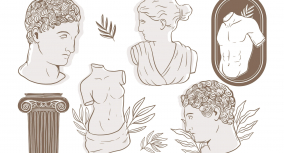
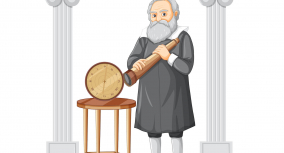



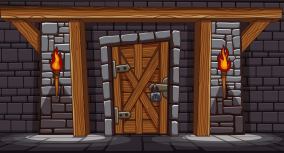
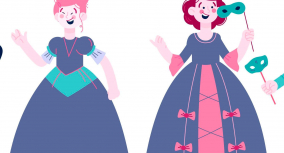
This is really helpful
Thank you